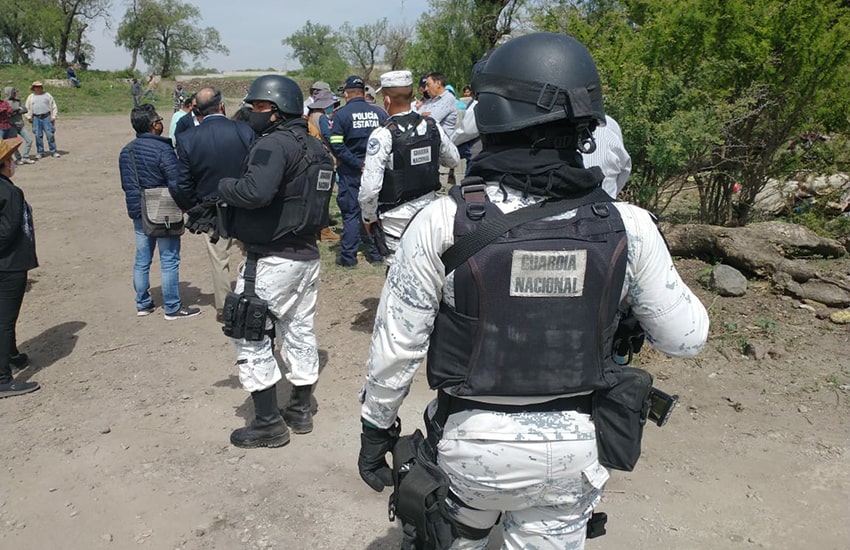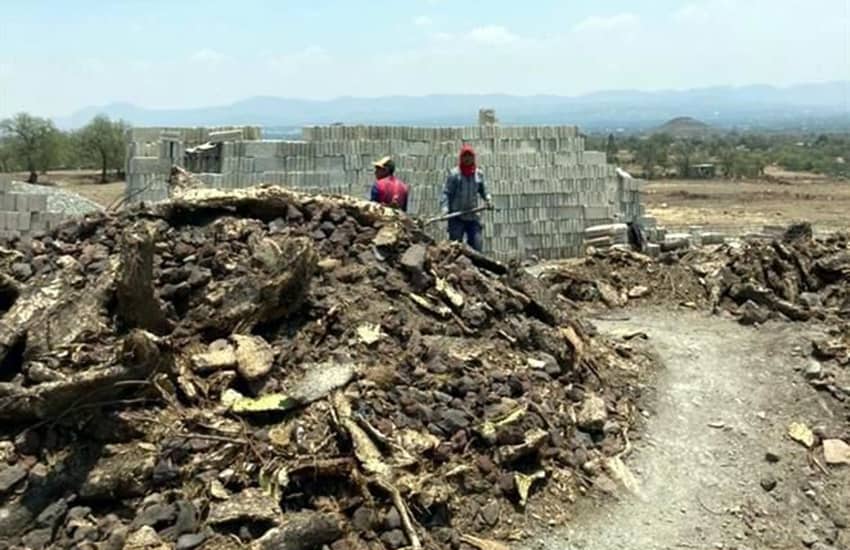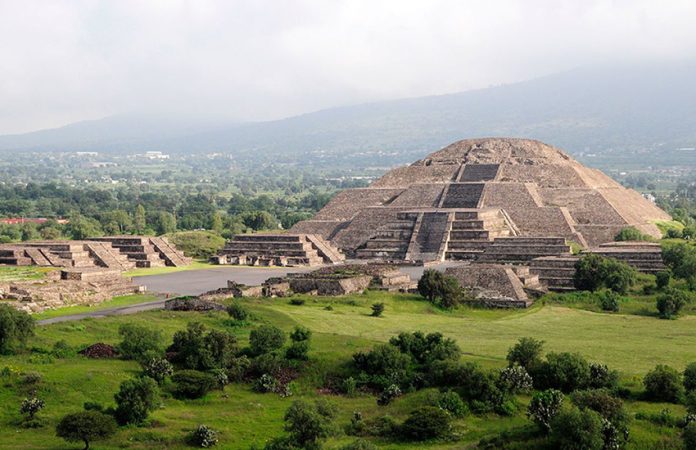The National Guard and Federal Police were dispatched Monday to an outlying section of the Teotihuacán archaeological site to seize land where illegal construction work has continued in recent months despite stop-work orders.
The National Institute of Anthropology and History (INAH) and the Ministry of Culture said 250 National Guard troops and 60 agents of the Attorney General’s Office participated in an operation to seize two parcels of land in Oztoyahualco, an area of the México state site that is known as the “old city” because it is believed that the Teotihuacán settlement began there.
In March, INAH suspended projects being built on private land in the area, one of which is believed to be an amusement park, and in April it filed a complaint with the federal Attorney General’s Office (FGR) against the illegal construction. The Culture Ministry also issued stop-work orders but construction work with heavy machinery continued, endangering at least 24 pre-Hispanic structures that haven’t been excavated.
INAH and the Culture Ministry said the FGR seized land in Oztoyahualco on Monday because the owners began construction work without authorization and caused “irreparable damage to the archaeological heritage of Mexico.”
The government departments said that once the land was officially secured, Teotihuacán municipal police were deployed to guard the property. Those responsible for the work could face criminal charges.

The Associated Press said the delay in shutting down the amusement park project “underlined how Mexico’s unwieldy, antiquated legal system makes it hard to enforce building codes and zoning laws or stop illegal construction, even on protected historical sites.”
The seizure of the land came a week after the International Council on Monuments and Sites (ICOMOS) warned that Teotihuacán, renowned for its two large pyramids, was at risk of losing its UNESCO World Heritage designation.
The council said that work with bulldozers threatened to destroy as many as seven hectares and that looting of artifacts had occurred. The Mexico branch of ICOMOS wrote to federal Culture Minister Alejandra Frausto and México state Governor Alfredo del Mazo to demand urgent action to stop the work.
Its plea and ongoing pressure from INAH and the Culture Ministry appeared to spur the FGR to shut it down.
That illegal construction was not stopped sooner at Mexico’s most visited archaeological site raises questions about the ability of authorities to protect lesser-known sites in more remote areas. Construction work has damaged sites such as Los Baños de Nezahualcóyotl (The Baths of Nezahualcóyotl) in Texcoco, México state, and looting of artifacts has occurred at many sites.
Featuring the 65-meter-high Pyramid of the Sun and the 43-meter-high Pyramid of the Moon, the Teotihucán site — which was once inhabited by more than 100,000 people but abandoned before the rise of the Aztecs in the 14th century — was visited by some 2.6 million people per year in pre-pandemic times.

Archaeologists continue to study the site and have made numerous new discoveries in recent years, including fragments of murals on the ancient city’s outskirts.
Source: AP (en)
